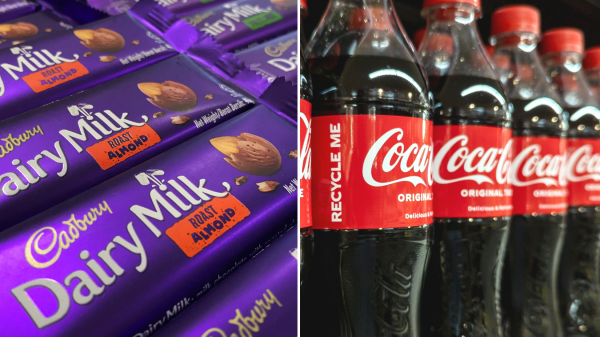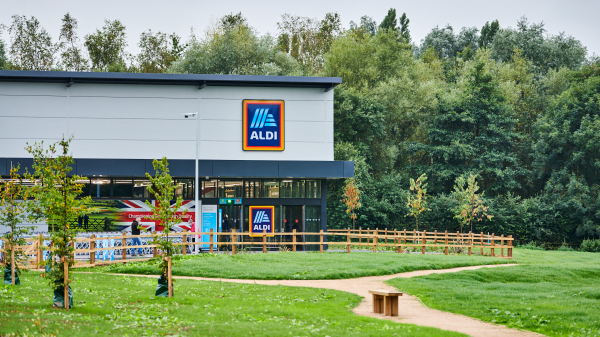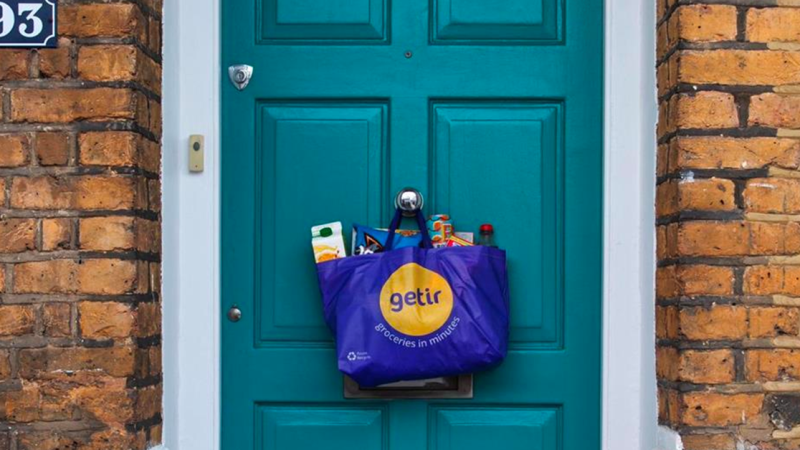If Aldi were to list its successes over the past year, it would be hard to know where to start. Low prices and consistent performance have seen the discount grocer being embraced by shoppers of all demographics – popping to Aldi and Waitrose in one shopping trip is no longer the anomaly it once was.
Leapfrogging the ailing Morrisons and taking its place in the Big 4 grocers was an undoubted highlight – but is Aldi’s impressive trajectory really going to stop there? Over the festive break, Aldi reported a 26% in sales, revealing the three-week period to be the discounter’s “best Christmas ever”.
“As we head into a new year, our promise to customers is that they will always get the UK’s lowest prices at Aldi, no matter what,” CEO Giles Hurley said at the time.
More recently, Aldi has been giving free bus rides to customers shopping at its rivals Tesco, Sainsbury’s and Asda stores, taking them to one of its stores instead. As marketing ploys go, it’s fairly bold.
With all this in mind, we take a look at Aldi’s past 12 months and ask if 2023 could be the discount supermarket’s best year yet?
Aldi’s unbeatable pricing
If there’s one thing Aldi is synonymous with, it’s low prices. The German retailer was consistently named the UK’s cheapest supermarket by consumer group Which? throughout 2022, overtaking Lidl in July and holding on tight to its crown throughout the rest of the year.
Most recently, for a basket of 48 groceries in December, Aldi was found to be the least expensive supermarket at £81.63, in comparison to Tesco, Asda and Sainsbury’s which ranged between £93.42 to £95.71.
Which? retail editor Reena Sewraz pointed out that “no-one wants to overpay for basic groceries, especially in the build-up to the festive season when many household budgets will be stretched”.
So in a climate where shoppers are – sometimes quite literally – counting every penny, how have other supermarkets responded to the success of the Aldi model?
In 2020, Big 4 grocer Tesco unveiled its Aldi price match scheme, which has seen hundreds of products being competitively priced with the discount grocer. At the time Tesco chief customer officer Alessandra Bellini said the campaign will help “time-poor and budget savvy customers get Tesco products at Aldi prices on products that matter to them”.
Subscribe to Grocery Gazette for free
Sign up here to get the latest grocery and food news each morning
However, two years since the launch the move has lost its shine, with cash-strapped customers looking for Aldi prices typically heading to – well – Aldi. This hasn’t stopped Sainsbury’s jumping on the Aldi price match bandwagon, with the UK’s second largest supermarket recently increased the range to 310 listings as part of its biggest ever push.
The jury is still out as to whether the well-publicised price matching is a clever pricing campaign or simply free press for the German discounter.
Bloomberg Intelligence food and retail analyst Charles Allen claims the Big 4 grocers are determined to not “repeat the 2010-2012 mistake of prioritising profit over price”. He states all supermarkets are likely to remain very price competitive , reducing the need for shoppers to go elsewhere.
According to Ged Futter – retail expert and director at The Retail Mind – Aldi will remain an industry leader, as it has adapted the way it operates in the UK to meet the idiosyncrasies of the British market.
“The problem you’ve got is the other supermarkets are trying to do what they can’t do, which is compete with Aldi on price. Aldi aren’t doing anything different to what they’ve always done.”
Market growth and supermarkets fighting back
Steadily increasing its share of the UK grocery market over the past 12 months has been a huge boost to Aldi’s business and profile within the sector.
Being named Britain’s fourth largest retailer earlier this year and nudging Morrisons out of the ‘Big 4’ was a significant move from the supermarket, which has continued to increase its market share across the UK ever since – it currently stands at 9.2%, after growing at the fastest rate so far.
Its relentless focus on low prices has seen Aldi poaching shoppers from the other supermarkets as consumers continue to keep costs down amid the cost-of-living crisis.
Last autumn, Kantar data revealed that the retailer welcomed an additional 1.65 million customers in the 12 weeks leading up to October, taking nearly £260 million in sales from other major retailers in that period.
Of that, more than £56 million in sales came directly from Tesco, with a further £12 million from Lidl.
With such a successful strategy, it’s little surprise that traditional supermarkets have been objecting to new stores opening near them, delaying Aldi’s expansion plans and affecting potential trade and profit projections.
Almost 40 new Aldi stores – roughly the amount the German retailer would expect to open in a year –have been placed on hold following planning objections and legal challenges from rival supermarkets, including Tesco and Asda.
The discount supermarket had initially hoped to have 1,000 stores in the UK by the end of 2022 but missed that mark by around 20 stores.
So what does 2023 have in store?
Bloomberg’s Allen said it is “easy to think that Aldi’s exit momentum from 2023 will ensure that it has another good year in 2023″.
He tells Grocery Gazette:”The expectation must be that it will continue to gain market share as consumers prefer to shop in limited assortment stores as a way of controlling spending.”
Despite the discount grocer announcing a raft of store openings, Allen believes stores are already operating at close to full capacity.
“Car parks in particular are often too small for the volume of trade so it cannot accommodate more shoppers,” he adds.
However, Futter believes Aldi will be doing the “exact same” as it did last year, continuing to apply the pressure in regards to price, while also making sure it has availability compared to traditional supermarkets.
Futter adds that despite breaking into the Big 4, he does not believe Aldi will not climb the ladder, as it is simply not its focus – adding that it would be “ambitious for [the supermarket] to maintain that level [of growth] as it puts a strain on supply chain”.
“Aldi is obsessed with price and availability. What it will do towards the end of the year is start dropping prices faster than any other grocer,” he says.
“Towards the end of the year, we’ll start to see inflation easing, and when that happens, it’ll be Aldi who are in charge.”










